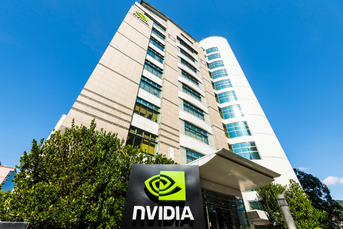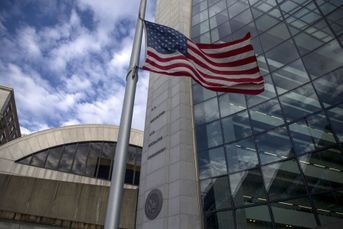Sources: SEC probing whether ex-49ers misled investors
The Securities and Exchange Commission is investigating whether HRJ Capital LLC, a defunct investment firm run by former…
The Securities and Exchange Commission is investigating whether HRJ Capital LLC, a defunct investment firm run by former members of the San Francisco 49ers football team, misled investors as it struggled to stay solvent in 2008, according to four people with direct knowledge of the probe.
HRJ Capital, co-founded by All-Pro lineman Harris Barton and Hall of Fame safety Ronnie Lott in 1998, operated funds of funds. The Woodside, Calif.-based firm invested $2.8 billion in venture capital and leveraged-buyout funds for public-pension systems and star athletes such as Indianapolis Colts quarterback Peyton Manning.
In early 2008, during the worst financial crisis in decades, HRJ Capital had more than $300 million in unfunded commitments to buyout funds when it received capital calls to make good on its pledges, according to company records. As Bloomberg Markets magazine reported in February, HRJ was unable to raise cash to meet those obligations and service loans from Silicon Valley Bank, a unit of SVB Financial Corp.
SEC lawyers are investigating whether HRJ and its senior managers improperly shifted debt to investors to try to meet those capital calls, according to the sources, who declined to be identified, as the probe hasn't been made public.
Starting in about April, SEC lawyers have been interviewing former HRJ Capital employees and clients, and reviewing e-mails and company records. Investigators are also probing whether HRJ Capital failed to disclose the alleged shift of debt to investors, the sources said.
TRANSFERRED LIABILITIES
“This is about trust,” said Austin Long, founder of Alignment Capital Group LLC, a consulting firm for the fund-of-funds industry. “What the bedrock piece of fiduciary duty means is, you do what's right for beneficiaries even if it's bad for you.”
Mr. Barton declined to comment.
Mr. Lott's lawyer, Rollin Chippey, a partner at Morgan Lewis & Bockius LP, declined to comment on behalf of his client.
Marc Fagel, the SEC's regional director in San Francisco, also declined to comment, citing the commission's policy of not addressing investigations.
In 2008, an HRJ Capital affiliate controlled by Mr. Barton and Mr. Lott, responsible for fulfilling capital calls issued by private-equity funds, transferred those liabilities to HRJ's funds of funds without informing investors, according to Deirdre Nectow, director of business development at Cambridge Associates LLC, a consulting firm that advised many of the firm's investors.
After HRJ Capital's investors discovered the maneuver in the third quarter of 2008, they protested to HRJ that they were responsible for meeting capital calls to buyout funds instead of the affiliate controlled by Mr. Barton and Mr. Lott. Such exposure could drain the funds of capital and ruin its performance.
Suomi Mutual Life Assurance Co., an HRJ Capital investor, wrote in a February 2009 letter to the firm's lawyers that the transfers violated HRJ's limited-partnership agreements, which prohibited its funds from assuming such risks.
“Our general view is that the limited partners are being improperly forced to suffer the consequences of the overcommitment problem created by other parties,” Jussi Snellman, a lawyer for Suomi, wrote in the letter.
Mr. Barton and Jeffrey Bloom, a former HRJ Capital managing director, declined to discuss the allegation of the transfer of liabilities in the Bloomberg story.
SUPER BOWL DYNASTY
Mr. Barton, 47, and Mr. Lott, 52, were members of the 49er dynasty that won five Super Bowls from 1982 through 1995. They traded on their gridiron glory to gain access to VC and buyout funds.
At HRJ Capital's peak in 2007, they were placing money for investors in funds at Blackstone Group LP, Heller & Friedman LLC and Kleiner Perkins Caulfield & Byers.
To secure allocations in top money managers, Mr. Barton and Mr. Lott made financial commitments to them prior to raising cash from investors, according to interviews that Mr. Barton gave Bloomberg News in late 2009.
When credit markets started to freeze in 2008, HRJ Capital no longer could win new clients, and it burned through credit lines to satisfy capital calls, according to firm records.
HRJ Capital was on the verge of bankruptcy when Capital Dynamics AG, a fund-of-funds firm took over management of its accounts in April 2009, according to company records. HRJ Capital's investors suffered no losses, according to a term sheet of the deal.
Capital Dynamics isn't being probed by the SEC, according to people familiar with the investigation.
Katharina Lichtner, a Capital Dynamics spokeswoman, declined to comment.
Learn more about reprints and licensing for this article.








